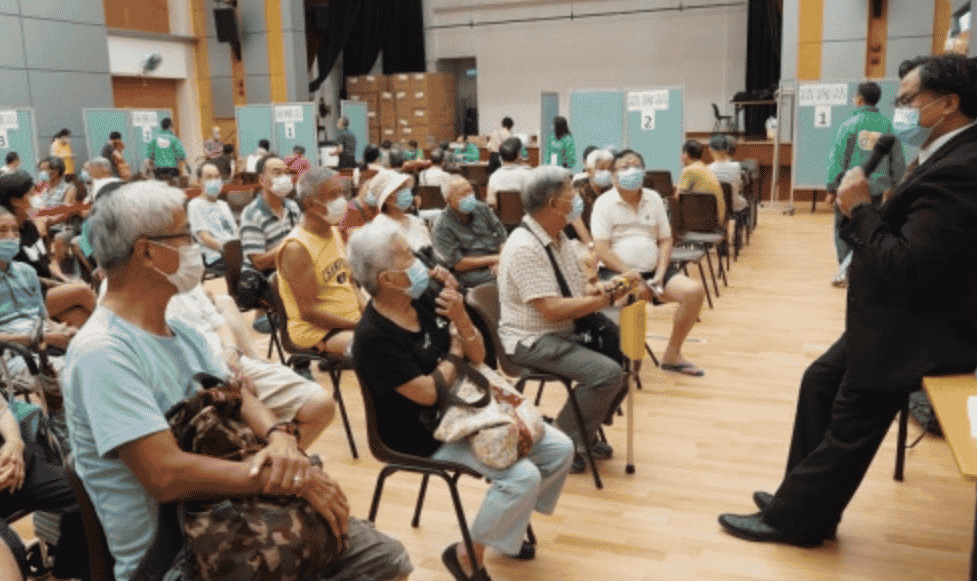The deadline for Britain's "hard Brexit" is imminent, and the uncertain future has made many young people feel hopeless about the future. Young people tend to remain in the EU, while older people tend to leave the EU. The generational gap emerged in the referendum two and a half years ago. The younger generation is unable to influence the overall situation and is seeing their opportunities for free migration, work and study being stifled. They will have to bear the consequences of Brexit, which are controlled by the older generation, for a long time to come. There are now 1.5 million more young voters. If history could repeat itself, I believe there would be a different outcome. With intergenerational injustice all too evident, calls for a second referendum are growing, creating another democratic crisis.
Silver democracy triggers intergenerational conflicts
The low birthrate and aging population have led to an accumulation of elderly voters, leading to the term "silver democracy" in Japan, which highlights the sense of oppression young people feel under the demographic disadvantage. Japanese Prime Minister Shinzo Abe has been seeking to amend the constitution to confirm the role of the Self-Defense Forces. The tragedy of World War II is still lingering in people's minds. Most Japanese adhere to pacifism and do not support constitutional amendment. However, young people who have not personally experienced war scenes have faced the threat of accidental clashes in recent years, such as the North Korean nuclear issue and the South China Sea territorial dispute, which has driven some people to hope to win the respect of geopolitical powers through military expansion. The younger generation is a minority in society and their political participation has always been low. Japan's lowering of the age threshold for constitutional referendum is a small step towards balancing the space for young people to have a voice.
Generational struggles are nothing new in Hong Kong, and the land debate is a microcosm of ideology. In the latest report of the Land Supply Task Force, based on a telephone survey, the older the respondents are, the more they value the scale of land options. It is not difficult to understand why support for near-shore reclamation and East Lantau Metropolis increases with age. As for young people, when considering the many land-finding options, they value the natural environment the most. The number of people who use this as a priority condition decreases from nearly half of the youngest group to slightly more than one-fifth of the oldest group. When "Lantau Tomorrow" was first proposed, cost-effectiveness was the focus, and public opinion even worried that it would leave a debt to future generations. After half a year of discussion, it was found that financial feasibility is not extremely difficult, but society’s concerns about the environment cannot be ignored. If not handled properly, it may become a trigger point for inter-generational conflicts.
Poverty alleviation measures adapt to generational divide
While the age threshold for Comprehensive Social Security Assistance for the Elderly in Hong Kong has become the fuse of the executive-legislative deadlock, many places in Europe and the United States are experimenting with universal basic income. Providing unconditional subsidies to meet basic living needs regardless of age or wealth will hopefully alleviate poverty, including working poverty, and avoid leaving out other groups in need amid the rising dependency ratio. This idea was rejected in a referendum in Switzerland because there was no clear answer to the core question of "where the money would come from". However, there is some interest among millennials who are part of the gig economy. Universal basic income can bring stability and predictability in a flexible and fragmented working model. It can also remedy the job market that will be reversed by automation and artificial intelligence in the future, and cope with the sharp drop in labor demand caused by the improvement of technological efficiency.
Intergenerational justice focuses on the inequality between the old and the young that society bequeaths to future generations. The problem is not the declining birthrate and longer life expectancy; the key issue is the discriminatory treatment of young people in order to cope with an aging population while ignoring their needs. Social resources and systems are undoubtedly limited, and this is the same in ancient and modern times. Social contradictions influenced by identity politics will only deepen the conflict between the old and the young. A mature society has diverse values. It needs both the experience of the elders to guide social growth and the thoughts of the young to promote social development. The differences must ultimately be resolved through dialogue between the two in order to foster unity among the generations.
Pan Xuezhi, Director of Democratic Thoughts



